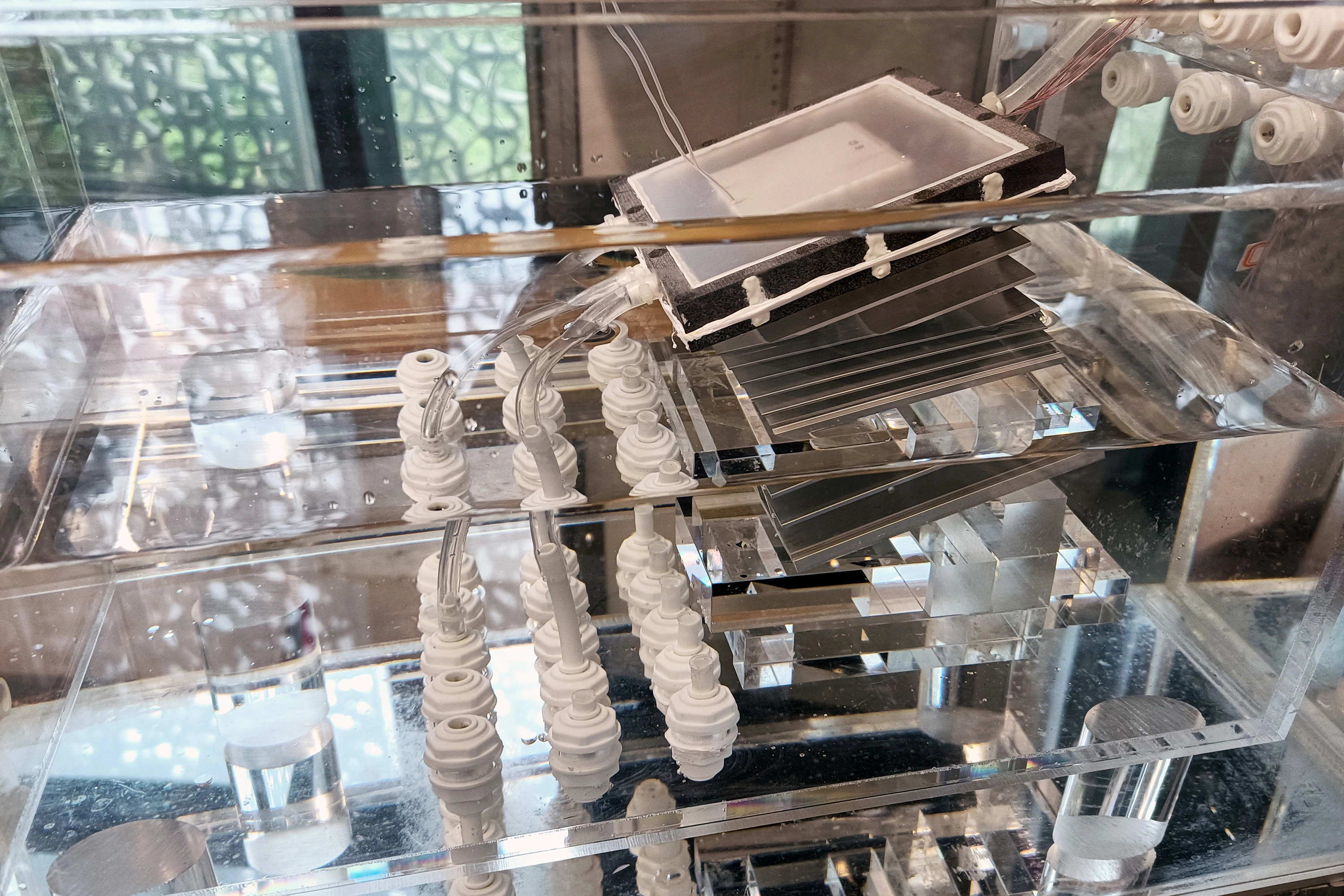Engineers at MIT and in China are aiming to turn seawater into drinking water with a completely passive device that is inspired by the ocean, and powered by the sun.
In a paper appearing today in the journal Joule, the team outlines the design for a new solar desalination system that takes in saltwater and heats it with natural sunlight.
The researchers estimate that if the system is scaled up to the size of a small suitcase, it could produce about 4 to 6 liters of drinking water per hour and last several years before requiring replacement parts. At this scale and performance, the system could produce drinking water at a rate and price that is cheaper than tap water.



‘Cheaper’….desalination eats a lot of power. This is causing a huge problem over a minor inconvenience.
Getting water to places that don’t have access to fresh water is not a minor inconvenience.
consumers already have tap water for comparison hence the title of it suggesting to be cheaper. Not as altruistic. Agreed it could help someone who doesn’t have accesss. But I disagree that simply taking it as an option of the two because one seems cheaper is not actually cheaper so much as an impact that everyone should turn to it as a sole option that is not being considered here.
The article explicitly states that it is directly powered by the sun.
I’ve heard this one before and the systems never scale w/o subsidy and/or capture of the salts for industrial/rare earth use.
And how does buying panels or power make it cheaper than filtering river water?
Solar panels is an entirely other discussion about the issues they themselves bring especially with covering the earth with more black surface which is negating the point of what the ice was doing to cool the earth before it melted. Ocean water is black and solar panels are black. Albedo effect. You’re turning the earth into a cinder block.
Surely you cannot pretend this is a real problem? This is nothing compared to the loss of Albedo caused by ice melting, and also nothing compared to the fossil fuels that would otherwise go to similar purposes.
Dodge the uncomfortable fact.
If you read about this device you’ll find it’s solar powered. Solar powered desalinization boxes are nothing new, but this one doesn’t get clogged quickly like previous models have. If it scales up as well as they’re hoping this could really help a ton of people.
Solar panels also have an issue that come with it covering the earth with more black surface which is negating the point of what the ice was doing to cool the earth before it melted. Ocean water is black and solar panels are black. This is known as albedo effect.
then you have the issue of helping people. Sure, helping people who have NO ACCESS TO WATER this should definitely be an option.
But offering it to people whom already have tap water and access to water as a secondary ‘cheaper’ option is not so altruistic particularly if we don’t consider the impact as the aforementioned non reflective surface that is a much bigger impact on global warming. Hence that solar panels aren’t an all-source solution for the overall issues.
They’re not solar panels, they’re solar powered by a black sheet that heats up the box to get the water evaporating. Creating clean tap water also takes energy so unless the effect of the box’s lower albedo is greater than the environmental cost of cleaning and transporting water it’s still a net positive, especially in those parts of the world where fresh water is scarce.
Again, not arguing if it’s needed where water is scarce, So the topic is switching to a cheaper form for tap water and this is being sold as an idea to people who already have water.
I saw that more of them contextualizing how cheap it is but I could be wrong